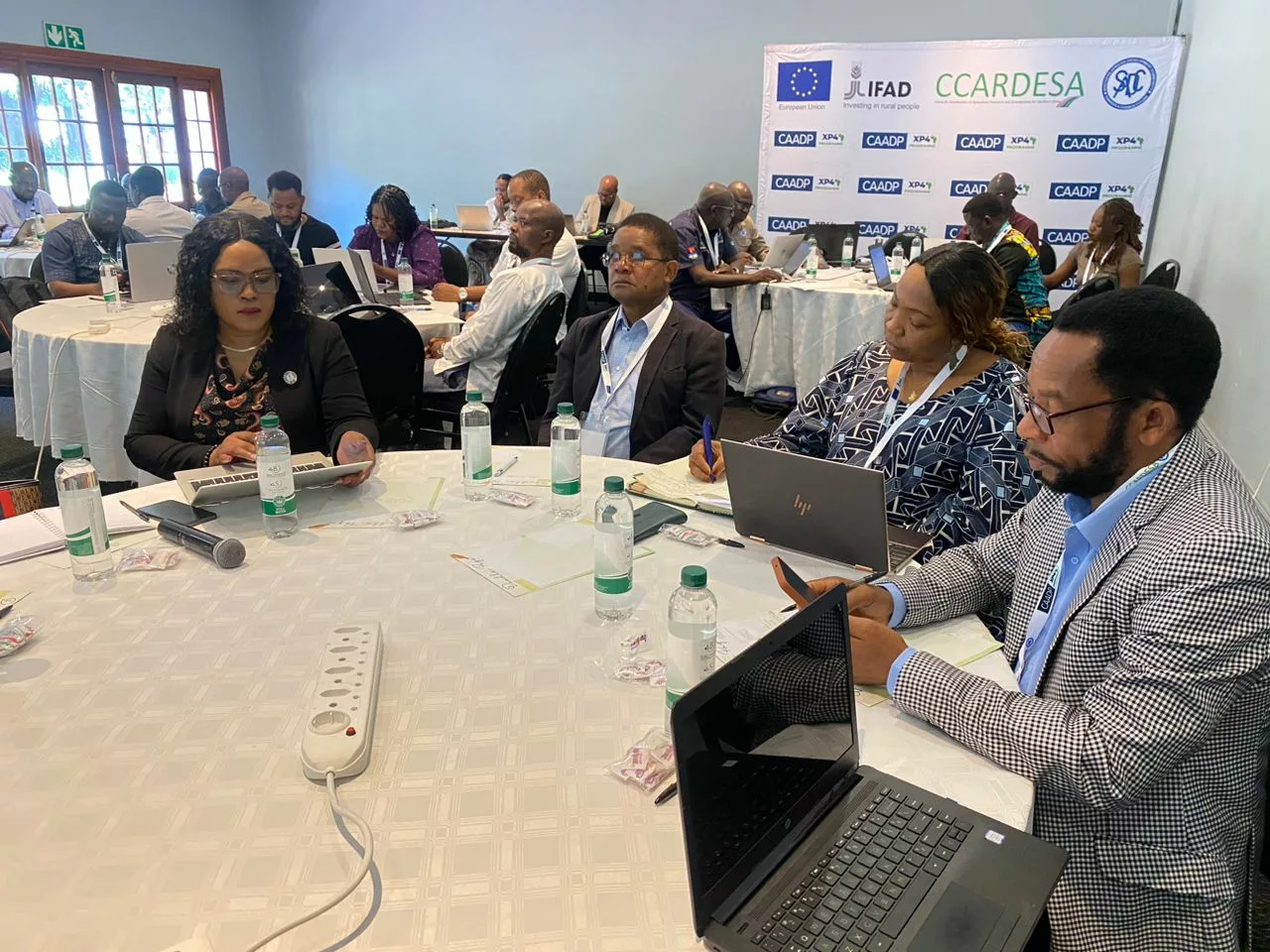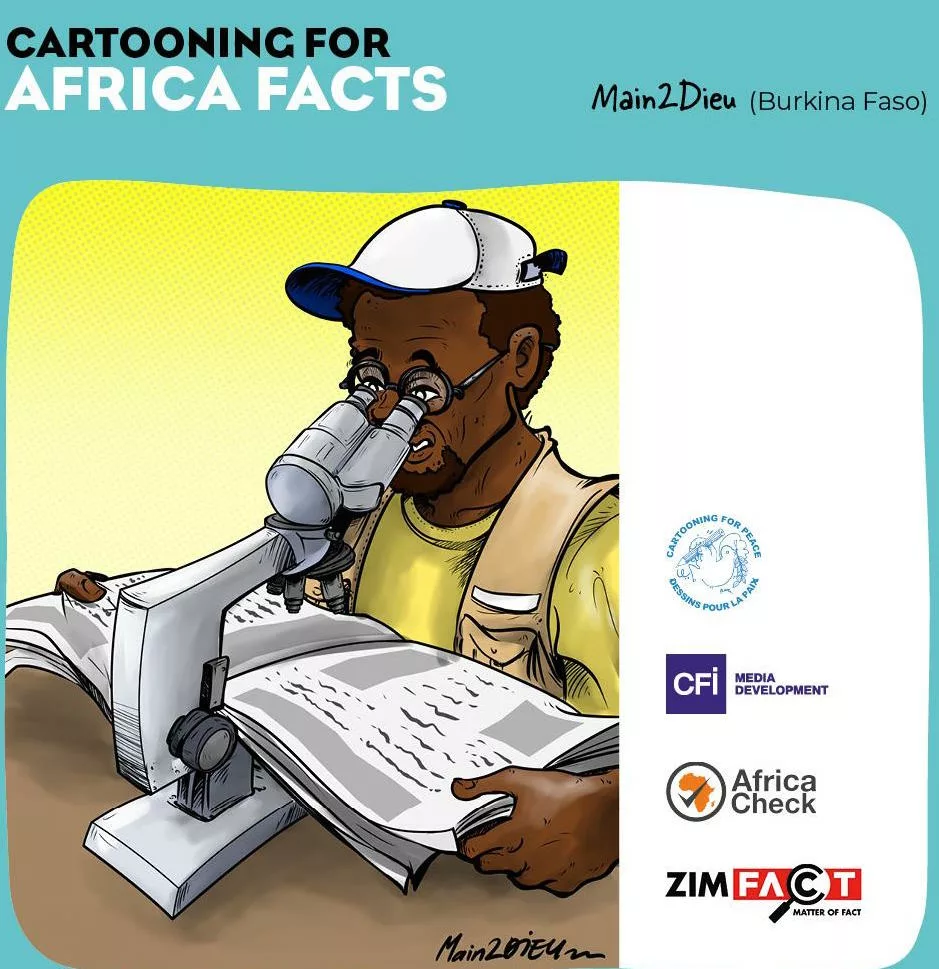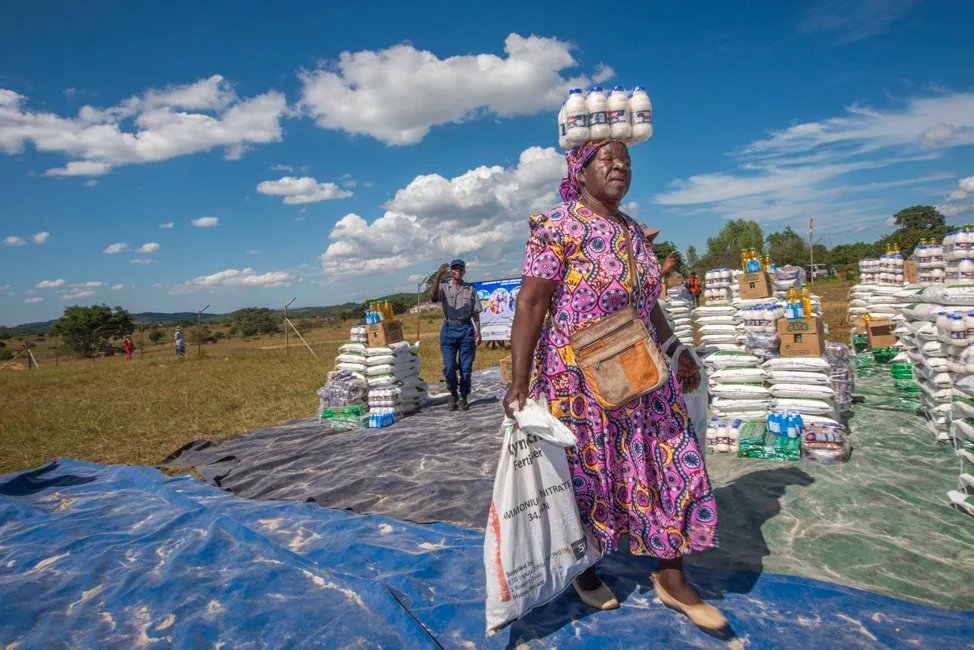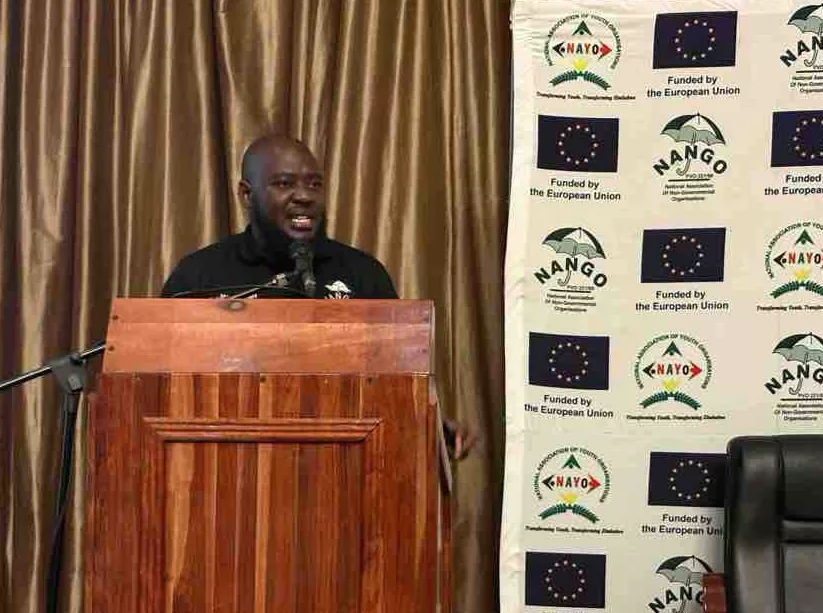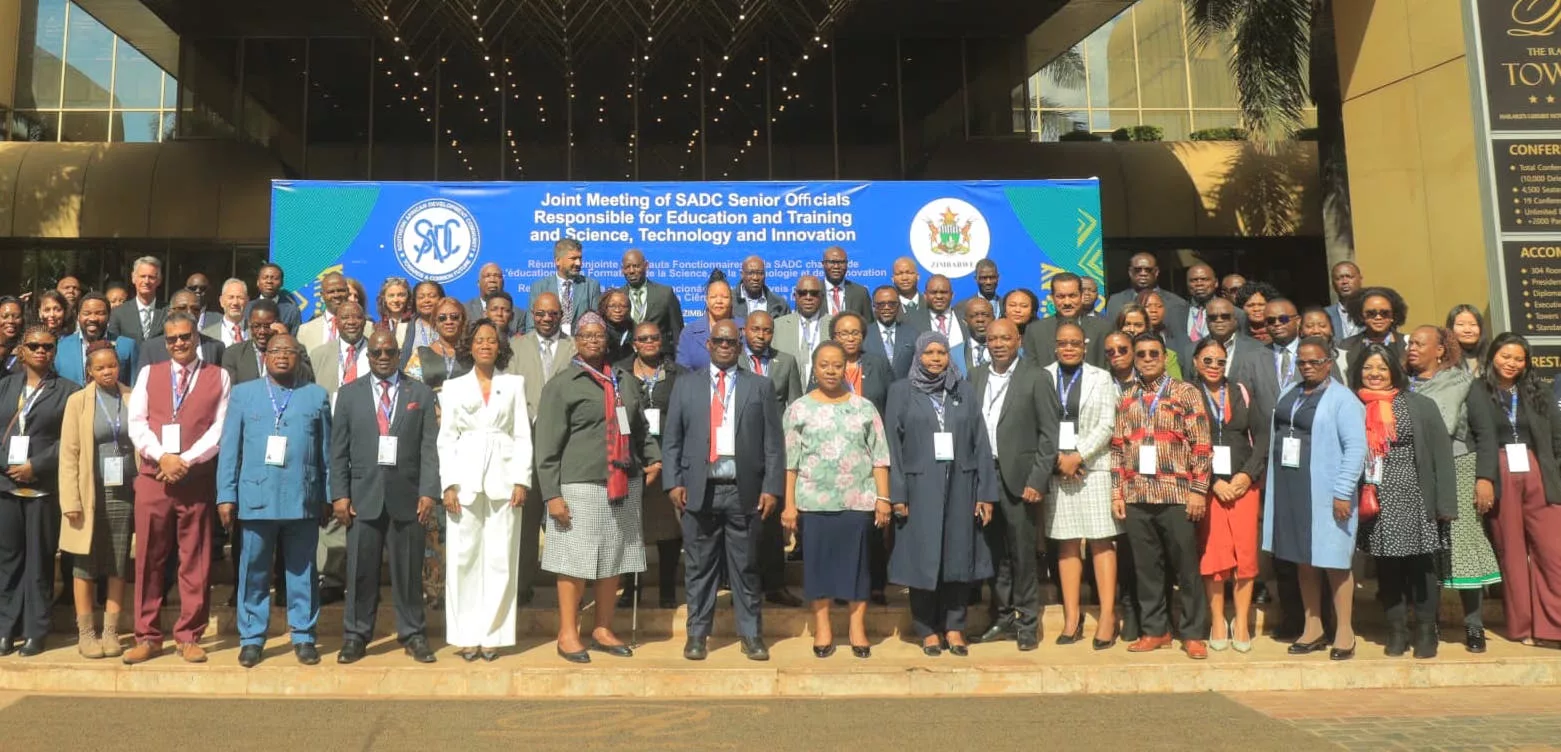|
Getting your Trinity Audio player ready...
|
This emerged at the CCARDESA’s Ukama Ustawi Learning Alliance Policy Dialogue Knowledge Management and Agricultural Policy meeting underway in Johannesburg, South Africa.
CCARDESA, as a regional organization, plays a critical role in strengthening agricultural research and innovation systems across the Southern African Development Community (SADC) region. Through knowledge management, CCARDESA facilitates the sharing and dissemination of agricultural research, policy insights, and best practices, working closely with national and regional stakeholders to improve agricultural productivity, food security, and policy development.
CCARDESA and ASARECA are jointly implementing the Ukama Ustawi (UU) Initiative, a four-year project to promote diversification for resilient agribusiness ecosystems in East and Southern Africa. The Policy Dialogue, hosted under the Ukama Ustawi Learning Alliance (UULA) is focusing on establishing sustainable frameworks.
Member States are Angola, Botswana, Comoros, Democratic Republic of Congo, Eswatini, Lesotho, Madagascar, Malawi, Mauritius, Mozambique, Namibia, Seychelles, South Africa, United Republic of Tanzania, Zambia, and Zimbabwe.
In his remarks, Prof Cliff Dlamini, the CCARDESA Executive Director, said knowledge management is pivotal in strengthening agricultural resilience and shaping policy across East and Southern Africa (ESA).
“CCARDESA, in partnership with the International Water Management Institute (IWMI), places great emphasis on knowledge management as a driving force for sustainable agricultural development. Through our collaborative efforts, we all work to ensure that research and innovations translate into practical solutions, reaching farmers, policymakers, and practitioners to support evidence-based decision-making and resilience building.
“This is being pursued through CCARDESA partnership with the One-CG with one of their regional integrated initiatives called ukama ustawi. Ukama ustawi is a CGIAR initiative on diversification in east and southern Africa, that aims to address food and nutrition security risks in the region arising from an overreliance on maize through a climate-resilient, water-secure, and socially inclusive approach,” Prof Dlamini said.
He added that climate forecasts have shown that east and southern Africa are expected to be negatively impacted by climate change, especially drought. While this is the case, he said these regions are dominated by maize-growing systems which makes them vulnerable to drought.
“Therefore, calls for the need for diversity to reduce this vulnerability. The expression ukama ustawi “is a bilingual word derived from Shona and Swahili. In Shona, ukama refers to partnerships, and in swahili, ustawi means well-being and development. Collectively, they represent the initiative’s vision to achieve system-level development through innovative partnerships: together, we grow and develop.”
“Under this initiative, the SROs were assigned roles related to knowledge management and policy engagement to bring about the desired policy shift. As part of this role, an assessment was undertaken to determine knowledge management capacity needs among our agric R&D communities in the two regions. ”
Dr. Dumisani Kutywayo, the Zimbabwe Ministry of Lands, Agriculture, Fisheries, Water and Rural Development’s Chief Director in the Directorate of Agriculture Research, Innovation and Specialist Services said the engagement was critical for the development of the sector.
“We, as Zimbabwe are participating in the Ukama-Ustawi partnership with the CG centres. For example, we are working on agroecology, and maize, in various districts in Zimbabwe, as Binga. So we have got research and development activities on the ground. The meeting is going to help us to improve knowledge management, specifically to see how we can enhance the innovation and dissemination to our farmers.
“Bear in mind that we have other dissemination platforms. We hope that as a takeaway from this workshop, we will be able to strengthen our Zimbabwe Agri-Hub, which is in its infancy, but needs financing and also proper coordination so that we can disseminate the benefits of this initiative,” Dr. Kutywayo said.
CCARDESA has partnered with FARA, AFAAS, CORAF, and ASARECA to professionalise knowledge management by running professional training on knowledge management for Integrated Knowledge and Campus Management (ICKM) focal persons in each member state. This was done under the knowledge management for agricultural development (KM4AGCD) challenge initiative which was supported under the EU-funded CAADP-XP4 programme which is implemented by the CAADP-XP4 partners.
Focal points are periodically capacitated on emerging issues to help them to report and curate information on different topics to inform the agricultural community in the SADC region. Through the effort of focal persons, CCARDESA is able to share success stories from different member states through our information platforms which include their website, discussion-groups and social media platforms.


